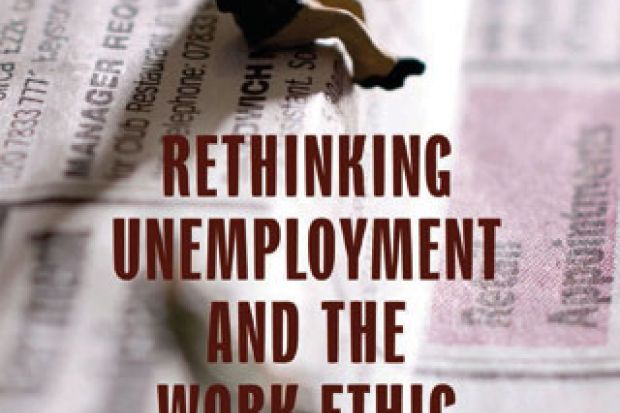This is an interesting, thoughtful book, but also quite an odd one. It sets up a straw man as its starting position and thus ends up avoiding the really challenging questions about social security for the unemployed. Unexpectedly, it then draws some very radical conclusions.
Andrew Dunn’s question is whether or not voluntary unemployment (“choosiness” among jobseekers) is a serious problem in the UK. Have structural explanations for unemployment been overplayed by academics, and the role of “dependency culture” underplayed? And, therefore, are tight conditionality rules the best way to reduce worklessness?
This is a reasonable question, but the oddity is that Dunn starts by characterising the “mainstream social policy” position as one that ignores any individual agency at all in explaining long-term unemployment. If this is indeed the mainstream position, it isn’t hard to challenge, and Dunn manages to do so. He finds that a small minority of jobseekers say they’re quite happy on benefits, thanks, or at least that they’re happier than they would be in the low-status, temporary and part-time work on offer. Analysing British Social Attitudes data, he finds that the unemployed are less likely than the employed to agree that “almost any job is better than no job”, even controlling for education and other observed characteristics. And he talks to employment advisers who say that some of the people they work with are indeed “too choosy”, and might well get a job if they were prepared to lower their expectations.
I’m not convinced, though, that many academics seriously argue that no unemployed people have any control over their situation. The bigger issue is whether this agency is overemphasised by policymakers (and the media) in comparison to structural factors. Politicians propose harsher benefit conditionality as the answer to unemployment even in the current recession. Yet as Dunn himself says, “There is nothing in this book’s findings to challenge the view that unemployment is best understood as largely a structural problem, concentrated in particular locations, times and socio-demographic groups.”
A more interesting question is how we can structure social security benefits so that they do indeed provide income security when times are tough, while also ensuring that there is a financial incentive to return to work. This is a massive challenge in a low-paid and insecure labour market: unemployment benefits need to sit below wages, but many jobs do not pay enough to lift a family out of poverty. Intriguingly, while Dunn wants to stamp out “choosiness”, and calls for more rigorous application of much tighter conditionality, including compulsory work placements, he also thinks out-of-work benefits should sit above the relative poverty line. Indeed they should, and in some European countries they do, but I don’t know if Dunn realises how very far we are from this in the UK, where an out-of-work couple with two children live on two-thirds of the poverty line, and a single person on well below half. To correct this would require a big increase in benefit spending, plus an unrealistically large investment in tax credits to maintain work incentives – and/or serious attention to wage inequality. How to address this inequality, and make low-paid, low-status (but essential) jobs better rewarded is the key challenge, and here Dunn’s book has nothing to say.
Rethinking Unemployment and the Work Ethic: Beyond the ‘Quasi-Titmuss’ Paradigm
By Andrew Dunn
Palgrave Macmillan, 240pp, £65.00
ISBN 9781137032102 and 2126 (e-book)
Published 10 October 2014
Register to continue
Why register?
- Registration is free and only takes a moment
- Once registered, you can read 3 articles a month
- Sign up for our newsletter
Subscribe
Or subscribe for unlimited access to:
- Unlimited access to news, views, insights & reviews
- Digital editions
- Digital access to THE’s university and college rankings analysis
Already registered or a current subscriber?





